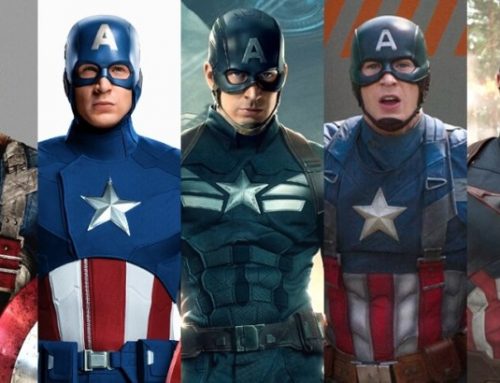By Barry Neil Shrum & Nathan Drake
In November 2010, the Federal Immigration and Counterfeit Enforcement agency (“ICE”) recently seized 82 websites and shut them down on the grounds that they were committing criminal copyright infringement. One of these websites has recently become the spotlight of attention:. Brain McCarthy, the owner and operator of channelsurfing.net, has been arrested by ICE and charged with providing free streaming content to NFL, NHL and NBA sporting events. According to the ICE, McCarthy accumulated approximately $90,000 from advertisers on his website, and has received over 1.3 million hits since being obtained last month, depicting the significance of the website.
I CE acts as the principle investigative arm of the United States Department of Homeland Security and is currently the second largest investigative arm of the federal government. What makes ICE’s action unusual is that McCarthy is charged with criminal copyright infringement, since most other cases involving copyright infringements are brought against defendants in civil court in search of damages. If charged as a criminal, McCarthy could serve up to five years in prison and pay substantial monetary fines.
CE acts as the principle investigative arm of the United States Department of Homeland Security and is currently the second largest investigative arm of the federal government. What makes ICE’s action unusual is that McCarthy is charged with criminal copyright infringement, since most other cases involving copyright infringements are brought against defendants in civil court in search of damages. If charged as a criminal, McCarthy could serve up to five years in prison and pay substantial monetary fines.
These actions by ICE create a certain level of perplexity in the eyes of the public. In the eyes of many, including the editors of TechDirt, ICE’s actions are not justificed since, at the time of the channelsurfing.net seizure, the website ostensibly did not “possess” any copyrighted material, but rather only provided links to other website/servers where the infringing material resides. Is the criminal charge levied against McCarthy warranted if he was merely acting as a conduit of infringing information?
Perhaps the answer lies in the criteria constituting criminal copyright infringement in United States Code Title 17 U.S.C. § 506(a) and 18 U.S.C. § 2319. The code states that the prosecutor must show the following elements to prove criminal infringement:
(1) that a valid copyright; (2) was infringed by the defendant; (3) willfully; and (4) for purposes of commercial advantage or private financial gain.
To apply the analysis, it’s necessary to understand, on a technical level, what is happening on the McCarthy’s website. He is providing a “link,” i.e., a form of hypertext markup language, or HTML, that, when clicks, directly a stream of video to the user within the structure of McCarthy’s website. So the question become whether the criteria has been met. Let’s examine it:
Is there a valid copyright? Yes. This is easy. The NFL, NHL, NBA, etc. all possess valid copyrights in their broadcasts.
For purposes of financial gain. No doubt. Here, McCarthy obviously profits from the availability of the infringing material on his website, regardless of where the material is stored.
Wilfully infringed by the Defendant. Here is perhaps where some debate might occur as to McCarthy. Was his intention in placing the links on the site to infringe the copyright owner’s rights? If so, was it wilful?
One case that has examined the issue of whether embedded HTML code can serve as the basis for copyright infringement is Perfect 10 v. Google decided by the 9th Circuit. In that case,, Google was accused of civil copyright infringement for using a database of “borrowed” photographic images and making them available on their website when a user performs a search. The Citizen Media Law Project at Harvard University explained the ruling on this case as follows:
“The court went on to conclude that HTML instructions do not themselves cause infringing images to appear on a user’s computer screen because the HTML instructions merely convey an address to the user’s browser, which itself must then interact with the server that stores the infringing image. Accordingly, the mere provision of HTML instructions, in the view of the 9th Circuit, does not create a basis for direct copyright infringement liability.”
Several things should be noted about the 9th Circuit’s opinion. First, this case involved civil liability for copyright infringement, not criminal. The elements for civil copyright infringement are very different than those for criminal infringement. Secondly, the 9th circuit court is known as a radical circuit and many of its decisions are on the fringe. It’s rulings certainly do not hold the clout of the U.S. Supreme Court. Nonetheless, the decision, though it will likely be challenged, provides a new and thought provoking perspective.
So, bottom line, what do we think about McCarthy? In my opinion, the 9th Circuit is off base in regard to providing HTML code that “merely convey Arguably no other circumstances in the history of law has caused so many problems of application as the invention and development of the Internet. This virtual world as wonderful a resource as it is, allows for greater efficiency and anonymity for infringers than ever thought possible, serving as a double-edged sword for this generation. While some may view the efforts of those pursuing copyright infringement via the Internet futile – in fact many consider copyright itself unnecessary as a result of the Internet – these enforcement efforts are nonetheless important and essential in maintaining the rights set forth by our forefathers over a century ago: rights of monopoly balanced with limitations and public access. If we as a society do not honor these goals, it is probable that we will be faced with a less creative society. http://paidcontent.org/article/419-feds-campaign-against-pirate-websites-leads-to-an-arrest/ http://www.ice.gov/about/overview/ http://www.justice.gov/usao/eousa/foia_reading_room/usam/title9/crm01847.htm





